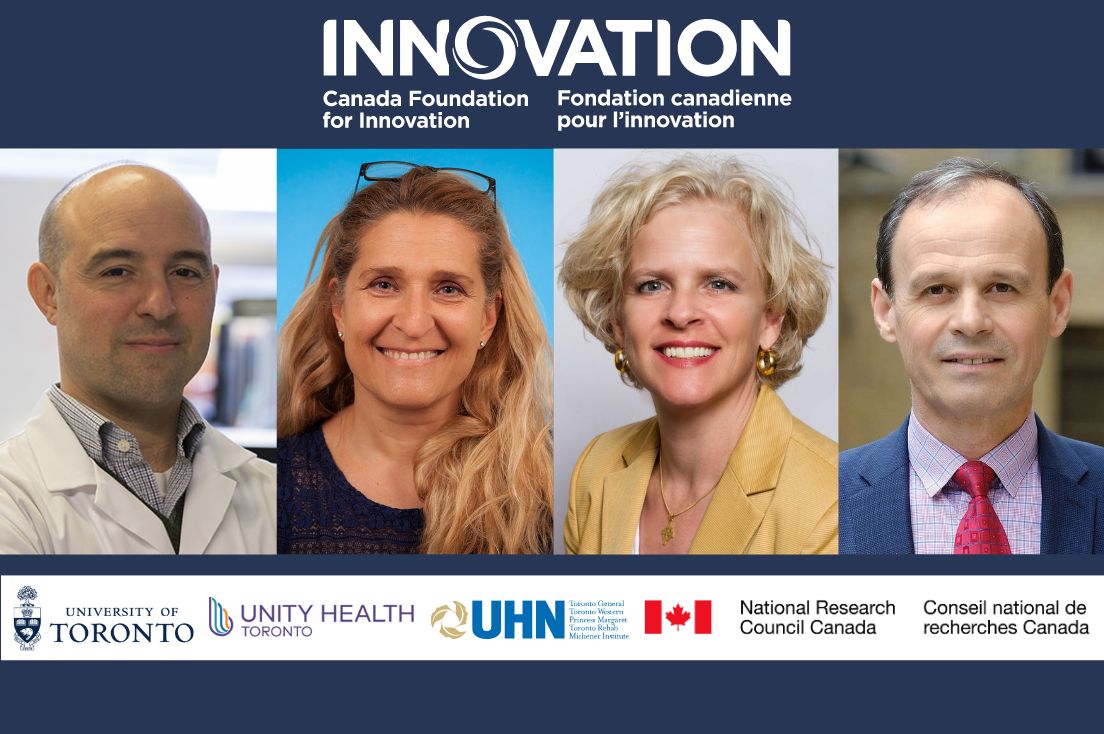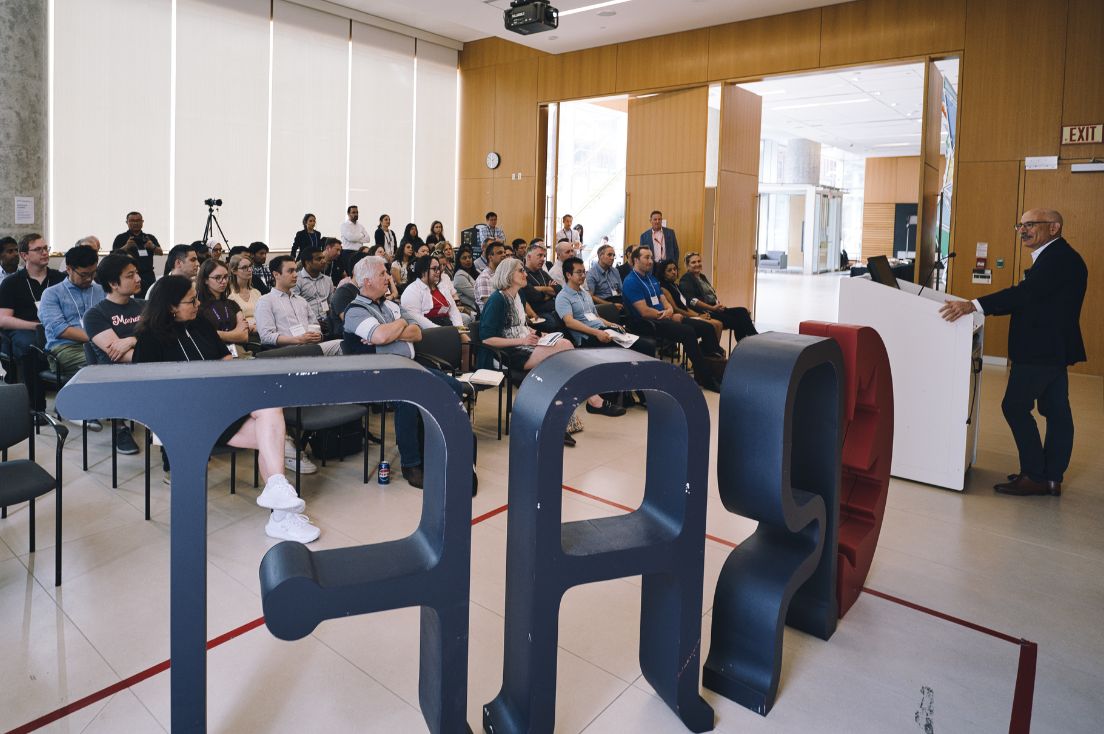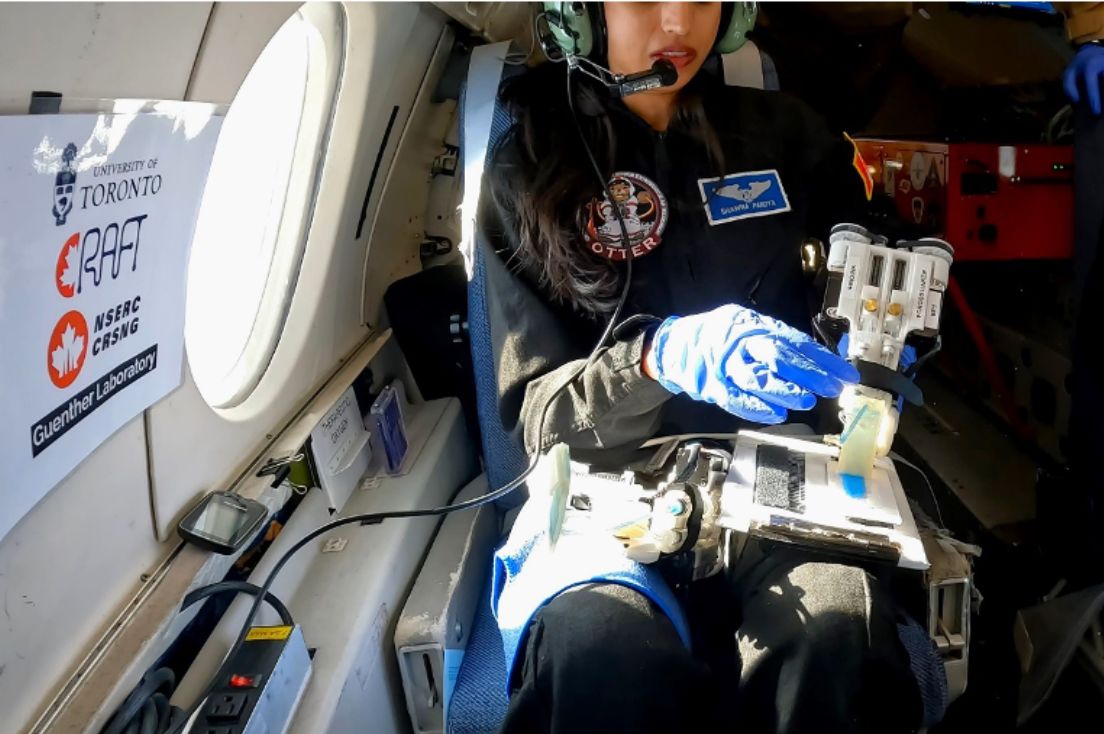
Leads of the Diagnostic Horizons Lab (left to right): Aaron Wheeler (University of Toronto), Claudia dos Santos (Unity Health Toronto), Heather Ross (University Health Network) and Teodor Veres (National Research Council of Canada).
CRAFT-led team awarded $17.5M to create new generation of ‘distributed’ diagnostics.
A team of researchers from the University of Toronto (U of T), Unity Health Toronto (Unity), University Health Network (UHN) and the National Research Council of Canada (NRC) have been awarded a $17.5M grant from the Canada Foundation for Innovation and partners to build the Diagnostic Horizons Lab (DHL) in Toronto.
The DHL will catalyze the development and promotion of a new generation of ‘distributed’ medical diagnostic tests, which are designed to be taken directly to patients — even those living in remote communities — and deliver results to them and their healthcare team much more efficiently and quickly than a centralized laboratory. Once deployed to communities and hospitals, these innovative portable tests could improve the well-being of many Canadians and even save lives.
The first tests developed in the DHL will target septic shock, a medical emergency that can rapidly progress to multiorgan failure; and heart failure, a chronic disease that if left unchecked inexorably leads to a downward cycle of poor quality of life, hospitalization and death.
“The diagnostic test is a cornerstone of modern medicine, serving to identify each patient’s condition and to assist in prescribing the appropriate treatment. The vast majority of diagnostic tests are run by highly trained personnel in centralized laboratories, making them less accessible — or even inaccessible — to many Canadians. The DHL will help address this urgent problem,” says U of T Professor Aaron Wheeler who led the DHL proposal.
The DHL will comprise a primary site in the U of T Department of Chemistry’s Lash Miller Chemical Laboratories building, which will be dedicated to diagnostic device design, prototyping, and manufacture. Two additional satellite hospital-sites at Unity and UHN dedicated to testing, validation, and staging in advance of clinical trials will complete the DHL. DHL activities are expected to start as soon as the funding is released.
The primary site will be administered by the Centre for Research and Applications in Fluidic Technologies (CRAFT), a joint venture that unites leaders in the microfluidics and biosensor communities from academia and the NRC in solving important Canadian healthcare problems. CRAFT’s infrastructure and expertise are mainly located at U of T’s downtown campus and at the NRC’s campus in Boucherville, Quebec.
Importantly, the DHL will bring critical new functionality that is not currently available at CRAFT or other academic facilities across Canada. For example, this includes new instruments for the manufacture and characterization of implantable sensors that are inserted subcutaneously to monitor physiological metrics and biomarkers of disease. It will also add new equipment for diagnostic device finishing for accessible integration of packaging, and reagents in portable diagnostic systems to ensure that they meet the high standards of usability by non-experts. Finally, it will extend CRAFT’s existing capacity for stand-alone device manufacture and characterization with device-device welding and flexible substrate processing.
“In partnership with TRANSFORM HF and other organizations, the DHL will form the base of a pipeline designed to translate diagnostics into settings where they can be useful to improve patient access, including regional and community hospitals, mobile health units, and remote Indigenous communities in Northern Ontario that are historically under-served and under-resourced for medical care,” says Dr. Heather Ross, the head of Cardiology at UHN and a co-lead of TRANSFORM HF and the DHL proposal.
“We expect that the DHL will inspire the community to develop myriad diagnostic innovations to address other urgent healthcare needs. And because test development is just the first part of the story, we have recruited partners from community and healthcare organizations, hospitals, federal and provincial governments, and industry to bring the DHL to life,” says Dr. Claudia dos Santos, a Critical Care Physician at Unity and a co-lead of the DHL proposal.
“This is a crucial investment in new infrastructure that will not only accelerate the development of new diagnostic devices through CRAFT, but also help CRAFT grow and strengthen its partnerships with stakeholders who are necessary for overcoming the barriers impeding the creation, domestic manufacture and deployment of made-in-Canada microfluidic-enabled medical devices,” says Dr. Teodor Veres, a Research and Development Director at the NRC’s Medical Devices Research Centre in Boucherville, the co-Director of CRAFT, and a co-lead of the DHL proposal.
To learn more about the new instruments that will soon be available through the DHL, please contact:
Dan Voicu
CRAFT Operations Manager, University of Toronto
dan.voicu@utoronto.ca
Caroline Miville-Godin
Infrastructure Manager, Medical Devices Research Centre, National Research Council of Canada
caroline.miville-godin@cnrc-nrc.gc.ca




